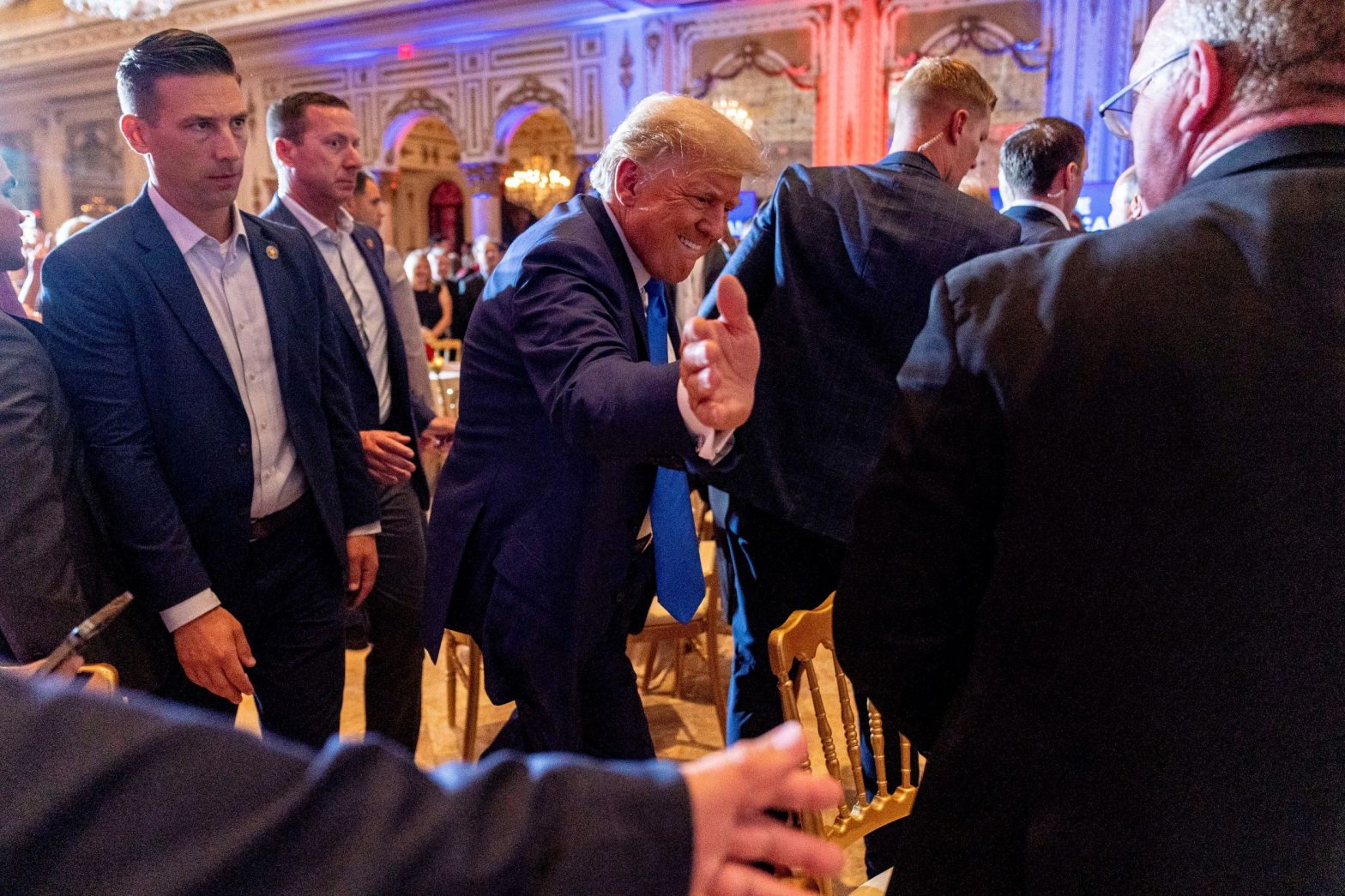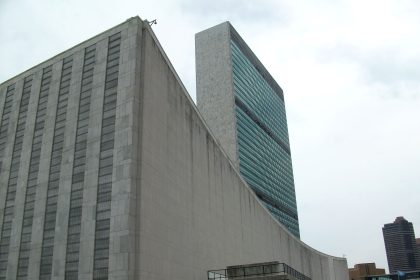Trump Argues Documents FBI Seized Were Personal in His Latest Court Battle

MIAMI — Former President Donald Trump is fighting back against FBI allegations he illegally took secret documents from the White House that he stored in his home.
In a court filing last week that a judge unsealed Monday, Trump says he was acting within his rights under the Presidential Records Act, which authorizes a president to designate some records as personal.
The Justice Department responded with a filing saying the law does not extend the authority to secret government documents.
“Plaintiff may not designate records qualifying as ‘Presidential Records’ under the Presidential Record Act … as his ‘personal’ records simply by saying so,” the Justice Department filing in U.S. District Court in Florida says.
The law is intended to ensure records reflecting the “official business” of the government are stored with the National Archives but family and other personal records remain with the president. Trump’s interpretation of the law would “nullify” its purpose, the Justice Department says.
U.S. District Judge Aileen Cannon unsealed redacted versions of the court filings on the same day Trump was subpoenaed to give testimony to the House committee investigating the Jan. 6, 2021, attack on the U.S. Capitol.
In a separate lawsuit filed Friday, Trump argued he should be exempted from the requirement to testify about his role in the insurrection. As a result, the House hearing scheduled for Monday was canceled.
The lawsuit means he is probably going to succeed in avoiding the subpoena as the case makes its way through the courts. The House Jan. 6 committee is scheduled to dissolve at the end of this year before a final judgment is likely to be made.
The subpoena also asks Trump to turn over 19 documents this week about his communications with his White House associates and with right-wing extremists that might indicate the president participated in plotting the riot at the Capitol.
Apparently unfazed by the legal wranglings, Trump has indicated he plans to announce another run for the presidency on Tuesday.
His Democratic opponents say his turmoil in the courts and the ongoing FBI investigation mean Trump has destroyed his credibility to the point he no longer is a serious contender to become president.
So far, the investigation has revealed that more than 13,000 government documents were recovered from Trump’s Palm Beach, Florida, home when the FBI executed a search warrant on Aug. 8. Others still are suspected to be held by Trump.
Documents seized from Trump included nuclear-related information and secrets overseen by the National Security Agency. Among them, 325 of the documents were classified.
Justice Department attorneys speculate the former president was motivated by ego to hold on to the documents. Their review of the classified documents recovered from Trump’s Mar-a-Lago home showed no apparent financial benefit Trump could get from them.
They believe Trump thought the documents were his own property.
The ongoing investigation relates to three criminal statutes, namely the Espionage Act’s ban on unauthorized retention of national defense information; a law that forbids destroying or concealing records “with the intent to impede, obstruct or influence” federal government activity; and a law against unauthorized removal or destruction of federal government records.
Trump’s attorneys responded to the allegations in the court filing unsealed Monday by saying the president acted properly under authority granted by the Presidential Records Act and executive privilege.
They cited a previous court ruling on the Presidential Records Act from the Clinton administration that said, “[t]he only reference in the entire statute to the designation of records as personal versus presidential . . . calls for the decision to be made by the executive. Under the statute, this responsibility is left solely to the president.”
Trump’s filing also said he could not be prosecuted because of the executive privilege granted the presidency under Article II of the Constitution. The privilege is intended to free the president to perform his duties without risk of being overruled or prosecuted by Congress or the courts.
His attorneys wrote that “the executive privilege recognizes the right of the president and high-level executive branch officers to withhold information from Congress, the courts and ultimately [the] public.”
The Justice Department responded with a filing that said there was no evidence the disputed documents could be considered personal.
“Plaintiff can only have received the documents bearing classification markings in his capacity as president,” the Justice Department wrote.
Tom can be reached at [email protected] and @TomRamstack






















